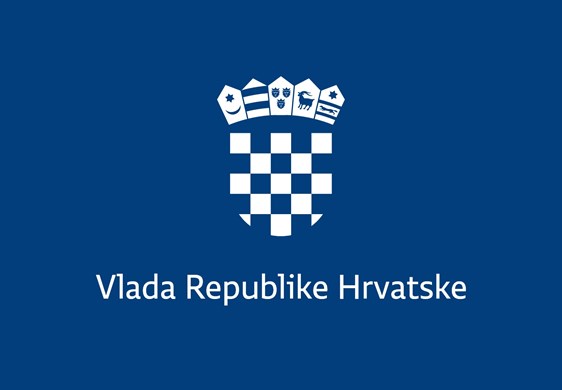Intervju premijera Milanovića za Bloomberg
- 27.06.2013.
- Ispiši

“Austerity no, but a rational approach to the budget,” Prime Minister Zoran Milanovic, 48, said in an interview his office in central Zagreb yesterday. “You can run some constructive -- so to speak -- deficits, in a very mild, constrained Keynesian way, but not too much.” Croatia will become the EU’s 28th member next week as the world’s largest trading bloc expands for the first time since Bulgaria and Romania entered in 2007. The ex-communist nation is seeking to end what threatens to be a five-year run without economic growth as it joins a club radically altered by the global financial crisis compared to when it started accession talks in 2005.
Having gone without economic growth since 2008, the Balkan country that emerged from the bloody breakup of Yugoslavia will face immediate pressure to contain a widening budget deficit. The lack of expansion also curtails Milanovic’s room to narrow the shortfall by cutting government jobs, which would further depress domestic demand, he said.
Economic Outlook
The gap will widen to 4.7 percent of gross domestic product this year and to 5.6 percent in 2014 from 2.4 percent in 2012, The European Commission forecasts. The government’s 2013 target is 3.4 percent. The economy will contract 1 percent this year after a 2 percent decline in 2012, according to the commission.
Central bank Governor Boris Vujcic today said economy will contract 0.9 percent this year, before resuming growth at 1.2 percent in 2014. That compares with his December forecast that the economy will grow less than 0.3 percent.
Vujcic told an economic conference in Vienna that foreign direct investment is “particularly important” as Croatia enters the EU because growth might be kick-started through investments later on.
“We are under pressure as the first government in Croatia’s history to undertake some bold measures -- by Croatian standards -- to downsize spending and explain to people there are no entitlements for life,” said Milanovic, who’s been in office since 2011. “I don’t believe in cuts, I believe in rational restructuring. Massive layoffs also lead to a contraction in consumption and that’s something you don’t need.”
Kuna Strength
The kuna was trading at 7.4545 per euro at 10:55 a.m. in Zagreb, compared with 7.4575 per euro yesterday, reaching its strongest since Oct. 2. It has gained 1.9 percent this quarter, the fourth-best performance among about 170 currencies tracked by Bloomberg. The yield on the government’s 2023 dollar bond fell to 5.940 percent from 6.030 percent.
The currency’s exchange rate, blamed by some companies including the exporter lobby group, Klub Izvoznika, as worsening their competitiveness against European rivals, will “probably” stay stable against the euro as there’s “no reason” the kuna should appreciate after EU entry, Milanovic said.
While Milanovic said Croatia as a small open economy is destined to eventually adopt the euro, he declined to give a date for the changeover.
Euro End-Game
“It’s been said that our currency is too expensive, but that is dubiously so,” Milanovic said. “If you are not productive, not good, no currency fluctuation will help you. As far as the euro is concerned, that should be the end-game.” Setting a date “matters, but it’s not essential.”
Even without the euro, EU membership by itself may help attract foreign direct investment by providing “psychological” assurance that the country’s legal system offers enough protection for businesses, according to Milanovic, who described himself as a “social democrat, free marketer, libertarian.”
The government is also seeking to pass a new law on strategic investments to help large-volume projects, he said. That may also help lure buyers to state-owned companies such as Croatia Osiguranje d.d., the nation’s largest insurer, and Hrvatska Postanska Banka d.d. The Cabinet wants to complete the Osiguranje sale by the end of the year and has “good interest” in the company, Milanovic said.
EU Funds
The nation is counting on as much as 10 billion euros ($13 billion) of EU funds through 2020 to help finance investment as the budget contraints prevent the government from stimulating growth by public spending. The Cabinet plans to channel the grants toward infrastructure and energy projects.
Croatia’s ability to absorb those funds and to spend them wisely will determine the country’s path after EU entry, Milanovic said.
“There will be plenty of possibilities, a plethora of possibilities, a new market, new chances,” Milanovic said. “You might get them if you work hard, if you prepare well, but you can also end up as a loser, as a net contributor, which would be a curse, which would be the opposite of what we intended. And I’m hell-bent on” success.
Milanovic said he intends to use some of those funds to help diversify the economy further. The country of 4.2 million people is focused on the service industry and tourism, which takes advantage of its 5,800 kilometers (3,600 miles) of coast along the Adriatic, including more than 1,000 islands.
“Isn’t that enough?” Milanovic said when asked what the country brings to the EU. “It brings rational people. A former socialist country, which went through a very destructive war and finally emerged as a stable democracy and market economy.”





.jpeg?preset=news-carousel-img)